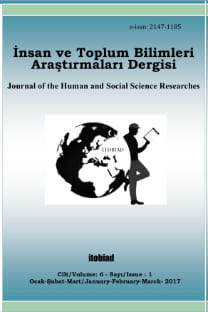Muhafazakârlık Ve Reform Arasında Bir Hareket: Neolog Yahudilik
Neolog Yahudilik 19. yüzyılda Macaristan’da gelişen ılımlı bir reform hareketidir. Alman Yahudi reform hareketinin Macar Yahudiliğine etkisiyle birlikte 19. yüzyılın başlarından itibaren Macaristan’daki cemaat örgütlenmesinde reform eğilimleri görülmeye başlamıştır. Alman reformunun Macar Yahudiliğine bir ideoloji ve dini yenilikler konusunda özel bir program sunmasına karşın Macaristan’daki politik ve ekonomik koşulların farklılığı Neolog Yahudiliğin eşsiz karakterini şekillenmesinde etkili olmuştur. Sözcülüğünü Aaron Chorin ve Leopold Löw’ün yaptığı Neolog Yahudilik, duaların yerel dilde ve başı açık şekilde yapılmasını belirtmiş, Şabat ibadetinde orgun kullanılmasını uygun görmüş, yedi günlük yas dönemini kısaltmış ve Şabat’ta okuma-yazmaya izin vermiştir. Neolog Yahudilik 1868-69 yılları arasında yönetim tarafından toplanan Genel Yahudi Kongresinde Ortodoks Yahudilikten ayrılmasına rağmen Neolog Yahudiler aşırı reformlardan kaçınmış ve belirgin şekilde ılımlı bir yönelimi benimsemişlerdir.
Anahtar Kelimeler:
Neolog Judaism; Macaristan; Reform; Aaron Chorin; Leopold Löw
A Movement between Conservatism and Reform: Neolog Judaism
Neolog Judaism is a moderate reform movement that develeoped in mid-nineteenth century Hungary. With the impact of German Reform Judaism movement on Hungarian Jewry reform tendencies had already appeared in the commity organizations of Hungary from the beginning of the 19th century. Although German Reform provided Hungary Jewry with an ideology and a specific program of religious innovation difference in political and economic conditions in Hungary combined to mold the unique character of Hungarian Neology. Neolog Judaism, whose leading spokesmen there were Aaron Chorin and Leopold Löw, pronounced prayer in the vernacular with an uncovered head, approved of the use of an organ on the Sabbath, curtailed the seven-day period of mourning and allowed riding and writing on the Sabbath. Neolog Judaism had separated from Orthodox Judasim at the General Jewish Congress convened in 1868-69, but refrained from introducing drastic reforms and adopted a distinctly moderate orientation.
___
- Ben-David, Joseph, “The Beginnings of Modern Jewish Society in Hungary in the First Half of the Nineteenth Century”, Jewish History, Vol. 11, No. 1 (Spring, 1997).
- Brenner, Michael, Kısa Yahudi Tarihi, çev.: Sevinç Altınçekiç, Alfa Yay., 2011,
- Jewish Budapest: Monuments, Rites, History, ed.: Kinga Frojimovics,Géza Komoróczy, Viktoria Pusztai, AndreaStrbik, Central European University Press, 1999.
- Katzburg, Nathaniel, “Hungary”, Encyclopaedia Judaica (E.J.), ed.: Fred Skolnik, second edition, Keter Publishing House Ltd, Jerusalem 2007, vol. 9.
- Konrád, Miklós, “Jews and Politics in Hungary in the Dualist Era, 1867–1914”, East European Jewish Affairs, vol. 39, No. 2, August 2009.
- Kovacs Andras, Forras-Biro Aletta, “Jewish Life in Hungary”, JPR Report September 2011.
- Lowenstein, Steven, “Joseph Ben-David’s Hungary and Moses Mendelssohn’s Berlin”, Jewish History, Vol. 11, No. 1 (Spring, 1997).
- Lupovitch, Howard, Jews and Judaism in World History, Taylor & Francis- Routledge, 2010.
- Lupovitch, Howard, “Aron Chorin, Neolog and Reform of Judaism”, Frankel Institute Annual, University of Michigan, vol.: 2009.
- Mendes-Flohr Paul, Reinharz Jehuda, The Jew in the Modern World, New York, Oxford University Press, 1995.
- Patai, Raphael, The Jews of Hungary: History, Culture, Psychology, Wayne State University Press, Detroit, 1996.
- Philipson, David, “The Rabbinical Conferences, 1844–6”, The Jewish Quarterly Review, Vol. 17, No. 4 8Jul., 1905).
- Plaut, W. Gunther, The Rise of reform Judaism : a sourcebook of its European origins, New York, World Union for Progressive Judaism, Ltd., 1969.
- Robinson, Ira, “Neolog Judaism”, The Cambridge Dictionary of Judaism and Jewish Culture, ed.: Judith R. Baskin, Judith Reesa Baskin, Cambridge University Press, 2011.
- Rethelyi, Mari, “Hungarian Nationalism and the Origins of Neolog Judaism”, Nova Religio: The Journal of Alternative and Emergent Religions, Vol. 18, No. 2, November 2014.
- Scheiber, Alexander, “Loew Leopold”, E.J., vol. 13
- Silber, Michael, “The Historical Experience of German Jewry and Its Impact on Haskalah and Reform in Hungary”, Toward
- Modernity: The European Jewish Model, ed. Jacob Katz, New Brunswick and Oxford: Transaction Books: 1987.
- Stessel Szász Zahava, Wine and Thorns in Tokay Valley: Jewish Life in Hungary : the History of Abaujszanto,1995 by Associated University Presses, Inc.
- Tolkes, Jerucham, “Aaron Chorin”, E.J., vol. 4,
- Valley, Eli, The Great Jewish Cities of Central and Eastern Europe, Rowman-LittlefieldPublishers, Inc., Oxford 2005.
- Yaron, Baruc, “Neology”, E.J., vol. 15.
- ISSN: 2147-1185
- Yayın Aralığı: Yılda 4 Sayı
- Başlangıç: 2012
- Yayıncı: Mustafa SÜLEYMAN ÖZCAN
Sayıdaki Diğer Makaleler
Yetişkinlerde Dindarlık ve Ruh Sağlığı
Moğol İstilasında Halife Nâsır li-Dinillâh'ın Rolü
Brezilya ve Arjantin’de İş Dünyasının Demokratikleşmeye Bakışları
Yetişkinlerde Dindarlık ve Ruh Sağlığı İlişkisinin Çeşitli Değişkenlere Göre İncelenmesi
Business Views of Democratization in Brazil and Argentina
Klâsik Türk Şiirinde Kadın Söyleminin İzinde: Şeref Hanım Dîvânı'nda Ninniler
